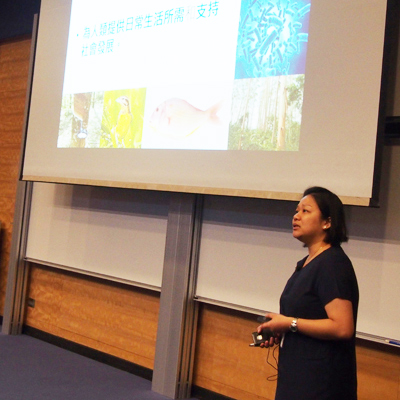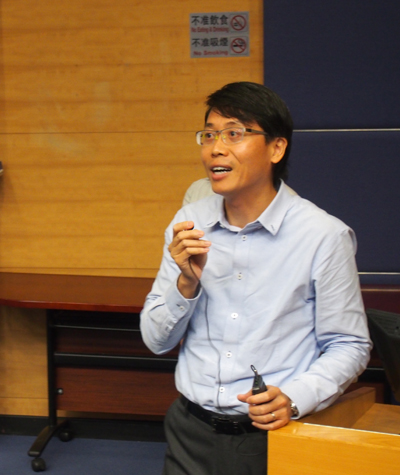Seminar on Sustainable Consumption of Biological Resources
29 Oct 2016


Biological resources provide for our fundamental needs and society’s development, for instance, clothing, food, medicine, etc., yet human’s overconsumption pattern has adverse impacts on the ecosystem and the environment, which in turn affects the availability and quality of the resources we rely on. Hong Kong’s unique position as a major trading hub and a world city famous for its food means that our activities can affect ecosystems at both the regional and global level.
In July 2016, the Council for Sustainable Development launched a territory-wide public engagement to raise public awareness about the topic and solicit public views on ways to promote sustainable consumption. To support this engagement exercise, the University Health Service, Personnel Office and the Campus Planning and Sustainability Office jointly organized a lunch seminar titled ‘Sustainable Consumption of Biological Resources—Why it Matters and Useful Tips for Buying High-Quality and Environmentally-Friendly Products at the Market’ on 26 October. The event invited Ms. Joyce Chow of the Policy for Sustainability Lab, University of Hong Kong and invited Dr. David Lau Tai Wai, curator of Shiu-Ying Hu Herbarium, CUHK to introduce current efforts to promote sustainable consumption, and also share tips on buying food that is high-quality, safe and environmentally-friendly at the market with around 70 staff and students who attended the event.
Ms. Chow introduced a number of measures currently used by the government and different sectors in Hong Kong to promote sustainable consumption, including banning of trawling and banning consumption of certain foods like shark fin and Bluefin tuna for official entertainment functions; some successful practices used overseas were also introduced, including a ‘green card’ system in South Korea that awards points to customers for buying products with environmentally-friendly labels. Dr. Lau, on the other hand, used a number of common food products as examples to illustrate ways people can make safer and more sustainable choices while purchasing. For example, buying lettuce instead of choi sum as the former usually has less pesticides, and buying locally available instead of imported fruits to save both money and carbon emissions.


